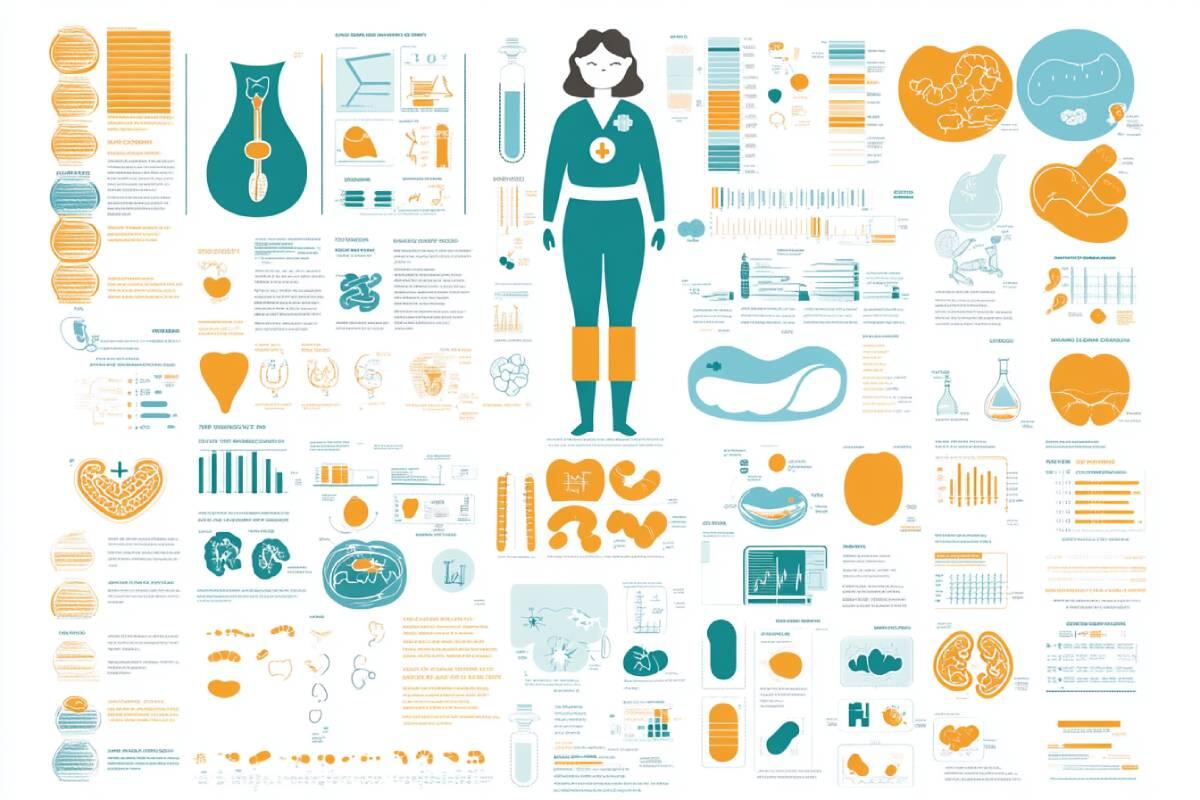Irritable Bowel Syndrome: Understand What It Is and How to Prevent It
Have you ever heard of Irritable Bowel Syndrome (IBS)? When we hear this term, we immediately think of symptoms like heartburn, cramps, or maybe constipation... But does this medical condition really have these characteristics?
Keep reading to understand what it means to receive an IBS diagnosis, the treatment options, and whether there are ways to prevent it.
Symptoms and Possible Causes of Irritable Bowel Syndrome
How does Irritable Bowel Syndrome develop? Does diet matter? And what about mental health?
Medicine has increasingly investigated the link between the gut and the brain. (In fact, the gut is often referred to as our “second brain”, did you know that?) Medical literature now uses the term "gut-brain interaction" to describe what were previously called "functional gastrointestinal disorders."
Irritable Bowel Syndrome (IBS) is recognized as a set of discomfort symptoms, including pain and intestinal disturbances, without necessarily having a structural abnormality.
📌 Main symptoms:
- Frequent abdominal cramps;
- Excessive gas;
- Episodes of diarrhea or constipation;
- A bloated or swollen feeling in the abdomen.
These symptoms can significantly affect quality of life. But how do we differentiate IBS from other conditions?
📌 Possible causes:
- Intestinal infections or inflammatory processes;
- Emotional imbalances, such as stress and anxiety;
- Unbalanced diet lacking fiber;
- Disruptions in gut microbiota.
IBS does not have a single, well-defined cause, making its diagnosis more complex.
🔹 How is it diagnosed?
- Ruling out other diseases, such as celiac disease or colitis;
- Tests such as colonoscopy and stool analysis to assess gut health;
- Monitoring symptoms over time.
📌 Important Note:
Symptoms may mask more severe conditions, such as colon cancer. Always consult a doctor if discomfort is frequent.
What Are the Treatment Options?
Unfortunately, there is no definitive cure for Irritable Bowel Syndrome. Treatment depends on a detailed evaluation by a doctor and/or nutritionist.
📌 Treatment options:
- Use of medications to regulate bowel movements and reduce cramps;
- Dietary therapy to restore gut microbiota;
- Lifestyle adjustments, reducing stress and improving diet.
🔹 Which professional should you consult?
- Gastroenterologist: assesses the need for medication and additional tests;
- Nutritionist: helps select foods that aid digestion and balance gut microbiota.
📌 Important Reminder:
IBS can recur from time to time, especially during periods of stress or after consuming trigger foods such as dairy, grains, fatty foods, or alcohol.
✔ Small daily changes can reduce flare-ups and improve quality of life.
Is There a Way to Prevent Irritable Bowel Syndrome?
Although there is no specific way to prevent IBS, certain healthy habits can help reduce the risk of developing the condition.
📌 Tips to protect gut health:
- Maintain a balanced lifestyle: regular exercise and quality sleep;
- Manage stress: seek therapy or, if needed, medical treatment;
- Eat a gut-friendly diet: consume prebiotics and probiotics daily to support gut flora.
🔹 The Connection Between Mental Health and Gut Health
Recent studies highlight a strong link between the gut and the brain. The digestive system can directly influence mood and may even be connected to mental health disorders.
Medicine is increasingly exploring this interaction and discovering new ways to treat gut disorders through lifestyle changes.
The Importance of Prebiotics and Probiotics
The recommendation to eat fresh fruits and vegetables daily is old advice, but it remains extremely relevant. Maintaining a balanced gut microbiota can help prevent various diseases.
📌 What are prebiotics?
- Fibers found in natural foods that serve as nourishment for beneficial gut bacteria.
✔ Main prebiotic-rich foods:
- Fresh fruits and vegetables;
- Oats and whole grains;
- Legumes such as beans and lentils.
📌 And probiotics?
- Fermented foods containing live microorganisms, which support gut flora balance.
✔ Main sources of probiotics:
- Natural yogurt and kefir;
- Sauerkraut and kombucha;
- Fermented foods like miso.
🔹 Why include them in your diet?
- Improve digestion and nutrient absorption;
- Strengthen the immune system;
- Combat harmful bacteria in the gut.
Conclusion
Irritable Bowel Syndrome can affect anyone, regardless of age or lifestyle. However, adopting healthy habits can help reduce symptoms and improve quality of life.
📌 Summary of key recommendations:
- Maintain a balanced diet, avoiding trigger foods;
- Manage stress, as it can trigger gut issues;
- Include prebiotics and probiotics in your diet to strengthen gut microbiota;
- See a doctor regularly to monitor symptoms.
Gut health is essential for overall well-being, and small changes can make a big difference in daily life.
🔹 This article does not replace medical consultation. Seek a specialist for proper diagnosis and treatment.
Bibliographic References
🔹 Einstein - Irritable Bowel Syndrome
🔹 Drauzio Varella - IBS Symptoms and Diagnosis
🔹 USP - Brain and Gut Connection
🔹 MPU Saúde - Prebiotics, Probiotics, and Gut Health
